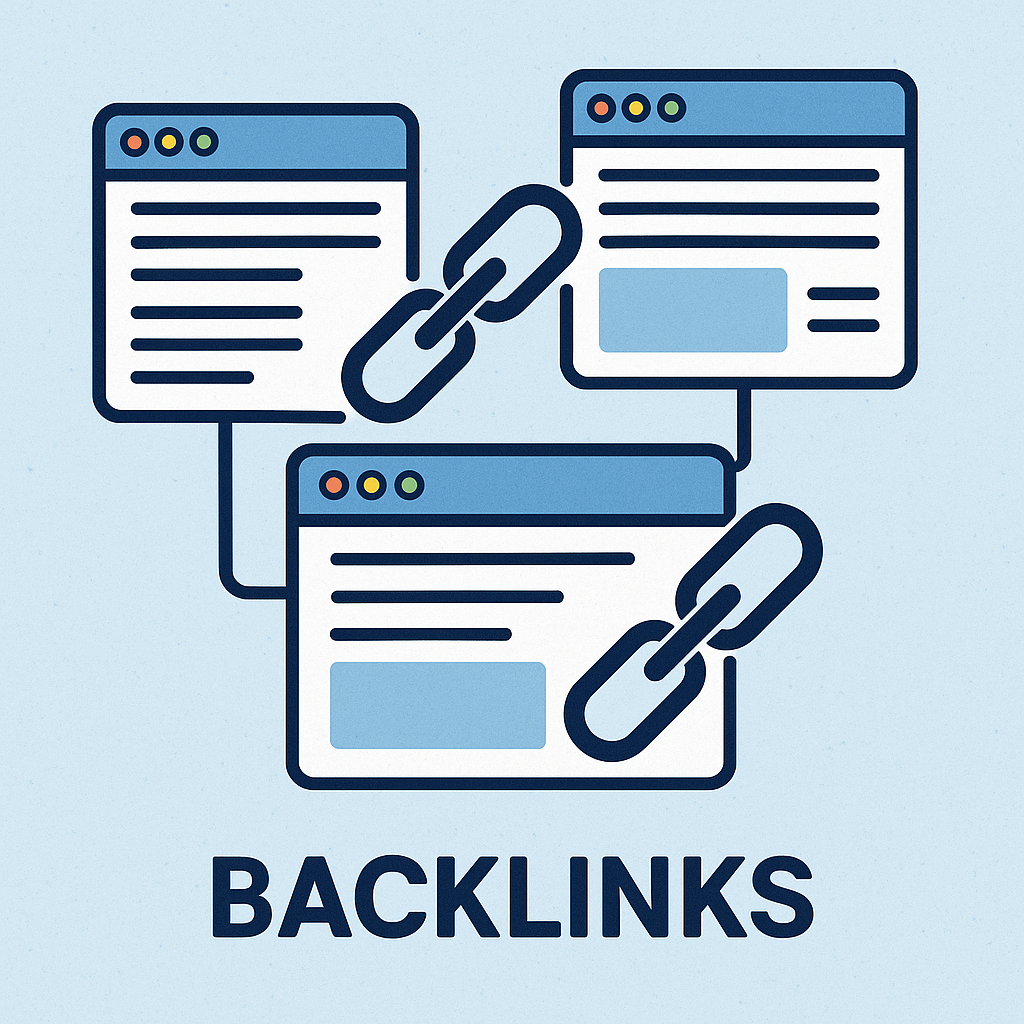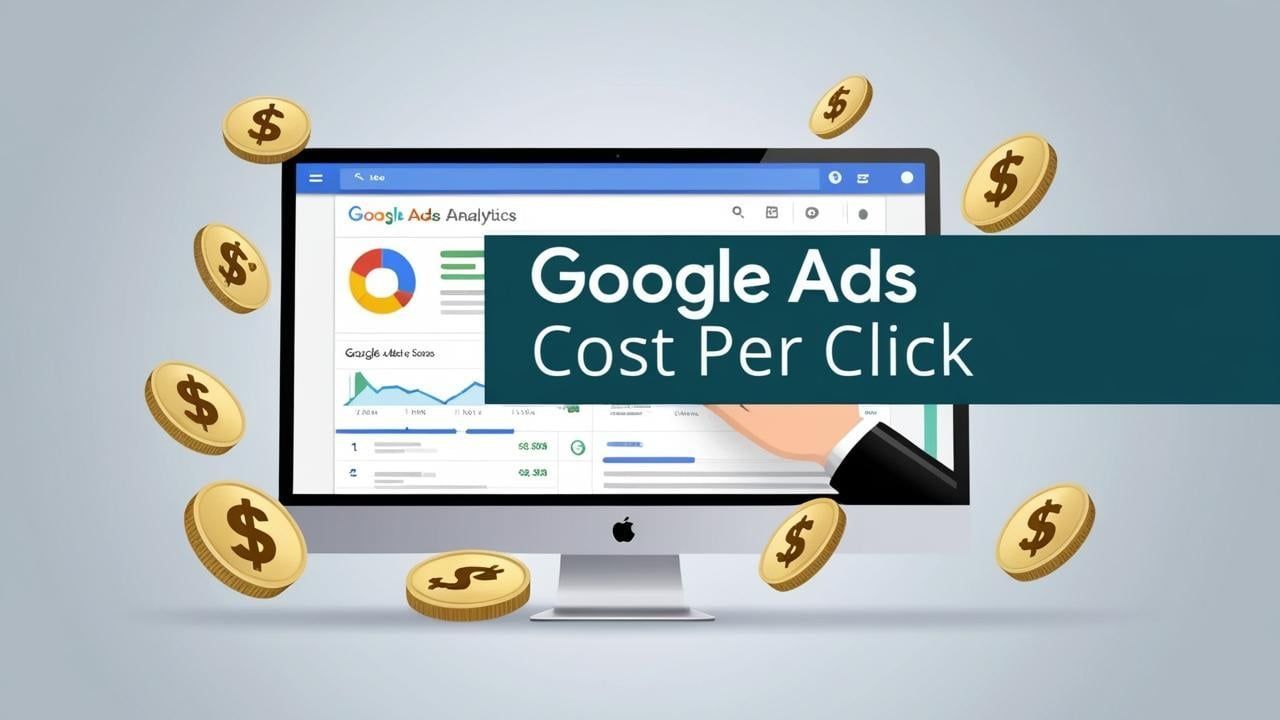Understanding the Role of a Google Ads Manager
The Role of a Google Ads Manager
The role of a Google Ads manager is multifaceted, requiring a blend of analytical and creative skills, technical expertise, and strategic thinking. As the digital landscape continues to evolve, businesses must ensure that their advertising strategies are not only current but also innovative. A proficient Google Ads manager is essential in navigating these complexities, ensuring that advertising campaigns are both impactful and efficient.
- Develops Strategic Advertising Plans: The foundation of a successful Google Ads campaign lies in its strategic planning. A Google Ads manager begins by engaging with stakeholders to understand the business's unique value proposition, target audience, and competitive landscape. This involves conducting a SWOT analysis (Strengths, Weaknesses, Opportunities, Threats) to identify areas where Google Ads can provide competitive advantages. By setting clear, measurable objectives, such as increasing brand awareness, generating leads, or boosting sales, the manager can tailor the advertising strategy to meet specific business needs. This strategic approach ensures that each campaign is aligned with broader marketing goals and positions the business for sustained growth.
- Conducts Keyword Research: Keyword research is a critical component of any Google Ads strategy. A Google Ads manager employs advanced tools like Google Keyword Planner, SEMrush, or Ahrefs to uncover high-potential keywords that align with the target audience's search intent. This process involves a detailed analysis of search volume, competition, and keyword relevance. By focusing on long-tail keywords, the manager can target specific niches within the market, reducing competition and increasing the likelihood of conversions. Additionally, they continuously monitor keyword performance, making adjustments based on seasonal trends or changes in consumer behavior to ensure optimal campaign performance.
- Creates Compelling Ad Copy: Crafting ad copy is both an art and a science. A Google Ads manager uses insights from market research and consumer psychology to create messaging that resonates with the target audience. This involves understanding the emotional triggers that drive consumer behavior and incorporating them into the ad copy. The manager also conducts A/B testing to evaluate different messaging strategies, allowing for data-driven optimizations that enhance the effectiveness of the ads. By ensuring that the ad copy is not only persuasive but also aligned with the brand's tone and voice, the manager can effectively capture the audience's attention and drive engagement.
- Manages Bidding Strategies: Effective bid management is crucial for maximizing the return on investment (ROI) of Google Ads campaigns. A Google Ads manager is skilled in utilizing various bidding strategies, such as manual CPC, automated bidding, or Target CPA, to achieve the desired outcomes. They continuously analyze performance data, adjusting bids to optimize ad spend and ensure that the most profitable keywords receive adequate budget allocation. This dynamic approach to bid management allows the manager to capitalize on market opportunities as they arise, ensuring that the business remains competitive in the digital advertising space.
- Monitors Campaign Performance: Monitoring campaign performance is an ongoing process that requires a keen eye for detail and a deep understanding of key performance metrics. A Google Ads manager uses Google Ads Analytics to track metrics such as Click-Through Rate (CTR), Cost-Per-Click (CPC), and conversion rates. By interpreting these metrics, the manager can identify trends, assess the effectiveness of the campaigns, and make data-driven decisions to enhance performance. This iterative process of monitoring and optimization ensures that campaigns continue to deliver value over time, adapting to changes in the market and consumer behavior.
- Analyzes Metrics for Improvement: Beyond monitoring, a Google Ads manager delves into data analysis to uncover insights that drive strategic improvements. This involves segmenting data to identify patterns and correlations, such as the types of ads that perform best during certain times of the day or the demographics that respond most favorably to specific messaging. By testing new ideas and refining strategies based on these insights, the manager can continuously improve campaign performance, driving better results and increasing the overall effectiveness of the advertising efforts.
Ultimately, a Google Ads manager plays a vital role in ensuring your ads are seen by the right people, at the right time, and in the right place. Their expertise in crafting and executing strategic advertising plans ensures that your business can effectively reach its target audience, driving engagement and conversions.
Key Qualities to Look for in a Google Ads Manager
1. Proven Experience and Expertise
Experience is a critical factor when hiring a Google Ads manager. An experienced manager brings a wealth of knowledge and practical insights that can significantly impact the success of your campaigns. When evaluating a candidate's experience, consider the following aspects:
- The Number of Campaigns Managed: A seasoned manager who has overseen numerous campaigns is likely to possess a deep understanding of the nuances involved in Google Ads management. This experience allows them to anticipate potential challenges and implement proactive solutions, ensuring smooth campaign execution.
- The Diversity of Industries Served: A manager with experience across various industries brings a diverse perspective to Google Ads management. They can draw on best practices from different sectors, applying innovative strategies that may not be immediately apparent to someone with a more limited industry focus. This adaptability is particularly valuable in today's fast-paced digital environment, where market dynamics can change rapidly.
- The Magnitude of Budgets Handled: Managing both small and large budgets requires a high level of financial acumen. A Google Ads manager who has successfully navigated campaigns with varying budget constraints demonstrates the ability to strategically allocate resources and maximize ROI. This skill is crucial for businesses looking to scale their advertising efforts while maintaining cost-effectiveness.
A seasoned manager should be able to provide case studies or references showcasing their ability to deliver results. These examples offer tangible evidence of their expertise and effectiveness in driving successful campaigns.
2. Strong Analytical Skills
Google Ads management is inherently data-intensive, requiring strong analytical skills to interpret data and make informed decisions. A successful Google Ads manager must be proficient in the following areas:
- Analyzing Click-Through Rates (CTR): Understanding what influences CTR is essential for optimizing ad placements and messaging. A manager with strong analytical skills can identify patterns in CTR data, allowing them to make strategic adjustments that increase engagement and drive traffic.
- Evaluating Conversion Rates: Conversion rate analysis is crucial for refining landing pages and sales funnels. By assessing the factors that contribute to conversions, a manager can implement optimizations that enhance the user experience and increase the likelihood of conversions.
- Understanding Cost-Per-Click (CPC) Dynamics: Knowledge of CPC dynamics allows for effective budget allocation and bidding strategy adjustments. A manager with a keen analytical eye can identify opportunities to reduce costs while maintaining or improving ad performance.
- Using Analytics Tools: Proficiency in tools like Google Analytics, Data Studio, and other tracking software enables managers to visualize data trends and performance metrics comprehensively. This capability is critical for turning raw data into actionable insights that drive campaign success.
The ability to turn data into actionable insights is crucial for optimizing campaigns and achieving business objectives. A Google Ads manager with strong analytical skills can continuously refine strategies, ensuring that your advertising efforts remain effective and aligned with your goals.
3. Creativity and Copywriting Skills
While data is important, creativity is equally essential. The best Google Ads managers are also skilled copywriters, capable of crafting engaging ad copy that captures attention and drives action. When evaluating a candidate's creativity and copywriting skills, consider the following:
- Creating Engaging Headlines and Descriptions: A creative manager knows how to write headlines and descriptions that not only meet character limits but also resonate with the audience, encouraging clicks. This requires a deep understanding of the target audience's preferences and the ability to convey complex ideas succinctly and persuasively.
- Developing A/B Test Variations: A successful Google Ads manager is adept at creating multiple ad variations to test what resonates best with the audience. By conducting A/B tests, they can gather insights into the most effective messaging strategies, allowing for continuous refinement and optimization of ad copy.
Creativity in Google Ads management goes beyond crafting compelling ad copy. It involves thinking outside the box and exploring innovative approaches to reach and engage the target audience. A manager with strong creative skills can differentiate your brand in a crowded marketplace, driving both engagement and conversions.
4. Technical Proficiency
A deep understanding of the Google Ads platform is non-negotiable. A Google Ads manager must be technically proficient in the following areas:
- Setting Up and Managing Google Ads Accounts: From structuring accounts to setting up campaigns, ad groups, and ads, technical proficiency ensures seamless execution. A manager with a strong technical background can efficiently navigate the platform, minimizing the risk of errors and ensuring that campaigns are set up for success.
- Using Advanced Targeting Options: Mastery of targeting options like remarketing, demographic targeting, and custom audiences ensures precise audience reach. A technically proficient manager can leverage these options to deliver highly targeted and relevant ads, increasing the likelihood of engagement and conversions.
- Implementing Ad Extensions: Knowledge of using ad extensions such as sitelinks, callouts, and structured snippets enhances ad visibility and performance. A manager who is adept at implementing these extensions can improve ad quality and increase the likelihood of clicks.
- Utilizing Automated Bidding Strategies: Understanding and leveraging automated strategies like Smart Bidding can optimize conversions by adjusting bids in real-time. A technically proficient manager can effectively implement these strategies, ensuring that your advertising efforts are both efficient and effective.
Technical proficiency ensures that the Google Ads manager can navigate the platform efficiently and leverage all available tools for optimal performance. This expertise is critical for maximizing the impact of your advertising campaigns and achieving your business objectives.
5. Certification and Continued Learning
Google offers certification programs for professionals who want to master their advertising products. A certified Google Ads manager demonstrates a commitment to their craft and a baseline of expertise. However, digital marketing is ever-evolving, so it's equally important that they show a willingness to continue learning and adapting to new trends and updates in the platform.
- Staying Updated with Google Ads Updates: Regular algorithm updates and feature changes make continuous learning crucial. A manager should stay informed through webinars, industry blogs, and Google Ads updates. This proactive approach ensures that they remain at the forefront of industry developments, allowing them to implement the latest strategies and best practices.
- Engaging in Professional Development: Participation in industry conferences, online courses, and networking events keeps their skills sharp and knowledge current. A manager who is committed to professional development is better equipped to navigate the complexities of Google Ads management and drive successful campaigns.
Continued learning is essential for staying competitive in the rapidly changing digital landscape. A Google Ads manager who prioritizes professional development is more likely to bring innovative ideas and strategies to your advertising efforts, driving long-term success.
Evaluating a Potential Google Ads Manager
Conducting Interviews
The interview process is your opportunity to assess a candidate's suitability for your marketing company. When conducting interviews, consider asking the following questions:
- Can you describe your experience with managing Google Ads campaigns? This question helps gauge the depth and breadth of their experience. Look for candidates who can articulate their involvement in campaigns, highlighting specific challenges they faced and how they overcame them.
- How do you approach keyword research and selection? Understanding their methodology can reveal how they balance creativity with data-driven insights. A strong candidate will demonstrate a strategic approach to keyword research, emphasizing the importance of aligning keywords with business objectives and target audience behavior.
- Can you provide examples of successful campaigns you've managed in the past? Real-life examples offer tangible proof of their capabilities and successes. Ask for specific metrics or outcomes that demonstrate the impact of their work, such as increased ROI, improved conversion rates, or enhanced brand visibility.
- How do you stay updated with changes in Google Ads policies and features? Their answer can indicate their commitment to continuous learning. Look for candidates who actively engage with industry resources, such as attending webinars or participating in online forums, to stay informed of the latest developments.
- What strategies do you use to optimize campaigns for better performance? This question assesses their problem-solving skills and strategic thinking. A strong candidate will outline a methodical approach to optimization, emphasizing the importance of data analysis, A/B testing, and continuous refinement of strategies.
Reviewing Past Campaigns
Request access to past campaign reports or case studies to evaluate a candidate's effectiveness in managing Google Ads campaigns. When reviewing their work, focus on the following aspects:
- Performance Metrics: Look for evidence of improved CTR, conversion rates, and ROI. These metrics provide insight into the candidate's ability to drive results and achieve business objectives.
- Budget Management: Assess how they have managed budgets to achieve desired outcomes, ensuring cost-effective strategies. A candidate who can demonstrate effective budget allocation and resource management is more likely to succeed in optimizing your advertising efforts.
- Creative Execution: Review the ad copy and visuals for creativity and effectiveness, ensuring that messaging aligns with brand goals. A candidate who excels in creative execution can differentiate your brand in a crowded marketplace, driving engagement and conversions.
Assessing Cultural Fit
While technical skills and experience are paramount, cultural fit is also important. A Google Ads manager will likely work closely with your team, so it's essential they align with your company values and can collaborate effectively.
- Team Collaboration: Evaluate their ability to work in a team setting, as Google Ads managers often need to coordinate with designers, content creators, and other stakeholders. A candidate who demonstrates strong interpersonal skills and a collaborative mindset is more likely to contribute positively to your team dynamics.
- Adaptability and Flexibility: Assess their ability to adapt to your company culture and adjust to new challenges and changes as they arise. A candidate who is open-minded and willing to embrace change is better equipped to navigate the dynamic digital landscape and drive successful advertising campaigns.
The Importance of Communication Skills
Strong communication skills are indispensable for a Google Ads manager. They must:
- Clearly Articulate Strategies and Rationale: Being able to explain complex strategies in simple terms ensures all stakeholders understand the campaign direction. A manager who excels in communication can align team members around common goals, fostering collaboration and driving cohesive campaign execution.
- Provide Regular Updates on Campaign Performance: Timely and transparent reporting keeps everyone informed and engaged with the campaign's progress. A manager who communicates effectively can build trust with stakeholders, ensuring that they remain informed of key developments and outcomes.
- Collaborate with Other Team Members: Effective communication with designers, developers, and content creators ensures cohesive and integrated campaign execution. A manager who excels in collaboration can bridge the gap between different departments, facilitating the exchange of ideas and driving successful outcomes.
- Handle Client Interactions: If applicable, they must manage client relationships with professionalism, addressing concerns and providing insights into campaign performance. A manager who communicates effectively with clients can build strong relationships, ensuring that their needs and expectations are met.
Good communicators ensure everyone is aligned with campaign objectives and progress, fostering a collaborative environment that drives successful outcomes.
Avoiding Common Pitfalls
Overemphasis on Cost Per Click
A lower CPC is desirable, but it shouldn't be the sole focus. A good manager understands that the ultimate goal is ROI. It's more important to focus on conversions and the overall effectiveness of the campaign than simply reducing CPC.
- Balancing Cost with Quality: They should aim for high-quality traffic that is more likely to convert, rather than just focusing on reducing costs. A manager who prioritizes quality over quantity can drive more meaningful engagement and better long-term results.
Ignoring Negative Keywords
A common mistake is failing to use negative keywords effectively. Negative keywords help prevent your ads from showing up for irrelevant searches, saving budget and improving campaign quality. Ensure your Google Ads manager has a strategy for identifying and utilizing negative keywords.
- Regularly Updating Negative Keyword Lists: Continuous refinement of negative keywords ensures campaigns remain focused and budget-efficient. A manager who actively manages negative keywords can prevent wasted ad spend and improve overall campaign performance.
Neglecting Mobile Optimization
With the increasing use of mobile devices, it's crucial to optimize ads for mobile users. A competent manager will ensure that your ads are mobile-friendly and that campaigns are adjusted based on device performance metrics.
- Responsive Ad Design: They should ensure ads display well on mobile devices, with fast-loading pages and mobile-friendly layouts. A manager who prioritizes mobile optimization can enhance the user experience and increase the likelihood of conversions from mobile users.
- Analyzing Mobile Performance Metrics: Regular analysis of mobile-specific metrics allows for adjustments in strategy to enhance mobile user engagement. A manager who is attentive to mobile performance can optimize campaigns to capitalize on the growing mobile audience.
Conclusion
Hiring a Google Ads manager is a significant decision that can greatly impact your marketing company's success. By prioritizing experience, analytical skills, creativity, technical proficiency, and communication abilities, you can find a candidate who will effectively manage your Google Ads campaigns and drive your business objectives forward.
Remember, the right Google Ads manager not only understands the platform but also knows how to align campaign strategies with your company's goals. With the right professional at the helm, your Google Ads campaigns can achieve higher visibility, better engagement, and increased conversions, ultimately contributing to the growth and success of your business. By avoiding common pitfalls and focusing on strategic, data-driven, and creative approaches, a skilled Google Ads manager can transform your advertising efforts and drive meaningful business results.










